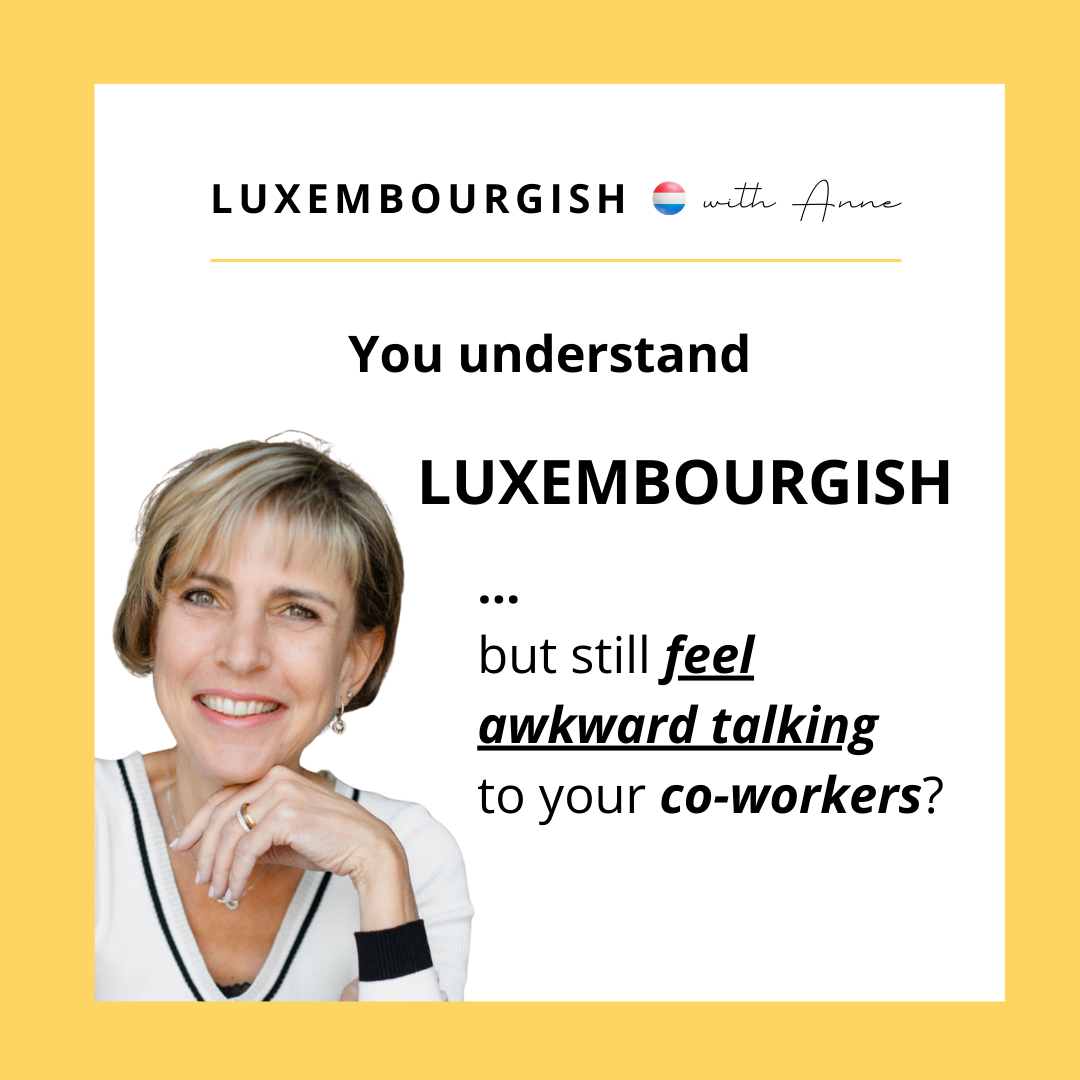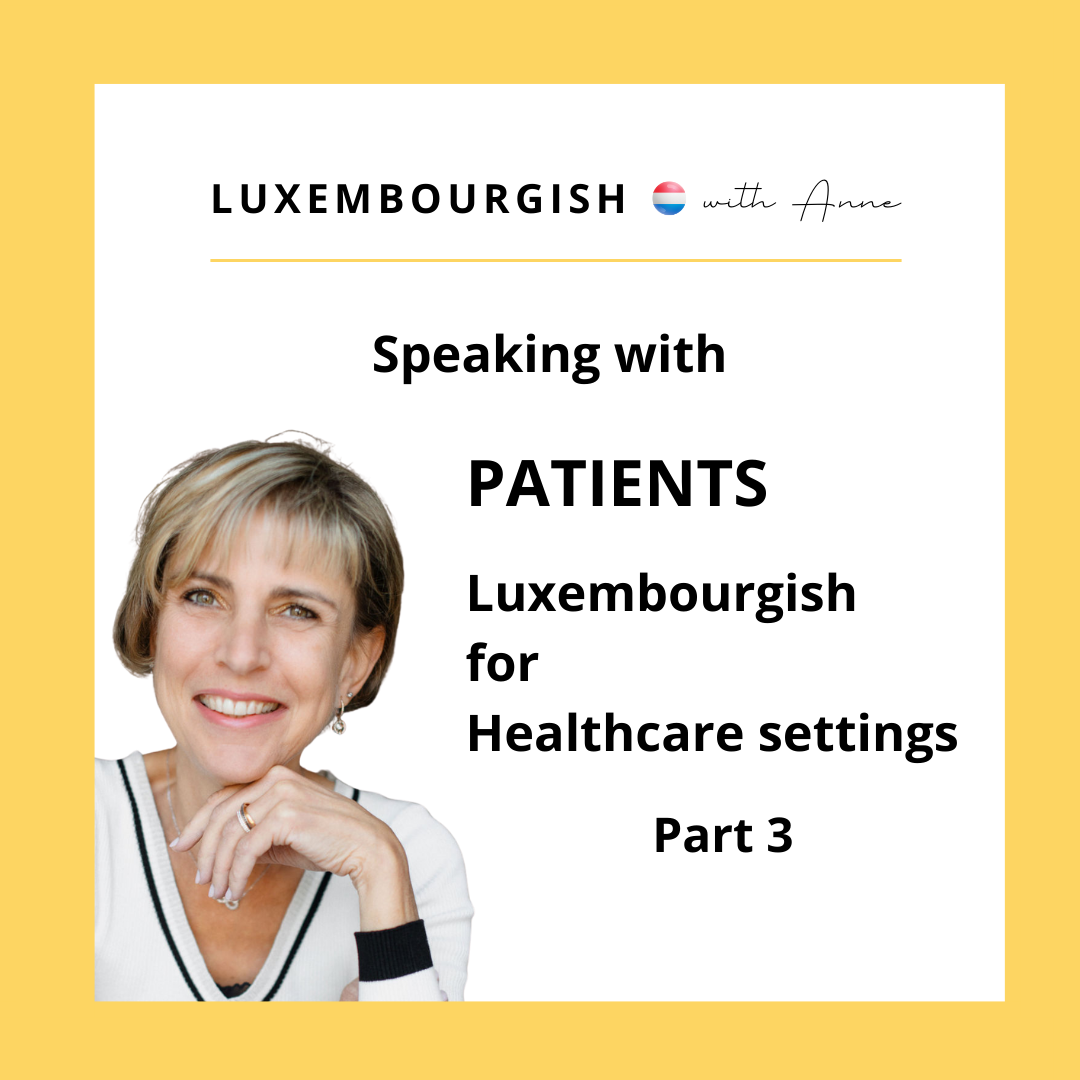Has this ever happened to you? Someone – like a colleague at work, or a parent at school, or someone at the sportsclub, or at a party – says:
“Salut, wéi geet et?”
And you answer:
“Gutt, an .. euh…”
…. and then? What should you say? Should you answer: an dir? an du? bei dir? oder mat dir? And when do you say an Iech?
So here are the two correct answers to: Wéi geet et?
1. Informal – Wéi geet et dir?
When you are with friends, with relatives or at work with colleagues the correct answer is:
“Gutt, an dir?”, or
“Et geet, a(n) bei dir? Gutt, a(n) selwer?, or
“Mir geet et ganz gutt haut, an dir?”
Or very simple:
“’t geet. An dir?”
“Jo, et muss!”
Sometimes, at social gatherings or at the office, you will hear people simply saying: An?” Meaning: An? Wéi geet et? Which might be for you a bit confusing. Just reply:
“Gutt. An du?”
2. Formal – Wéi geet et iech?
If you do not know the other person well or if it is a person whom you should address repsect (person older than you or a person who has a position of power …) then the correct answer is:
“Gutt, an Iech?”, or
“Ganz gutt, merci! An Iech?
So it is as simple as this!
In the formal setting the idea is to just give a quick, positive answer. Even if your dog just died, your child is sick or your smartphone battery just died. A real response, especially with lots of bad things, that’s uncomfortable.
Basically, that’s just what’s “normal” for this type of conversation. It is the Luxembourgish way of being friendly and polite with the people they interact with. It’s especially the case in service transactions, like with a server at a restaurant, the cashier at a shop, a receptionist, etc.




